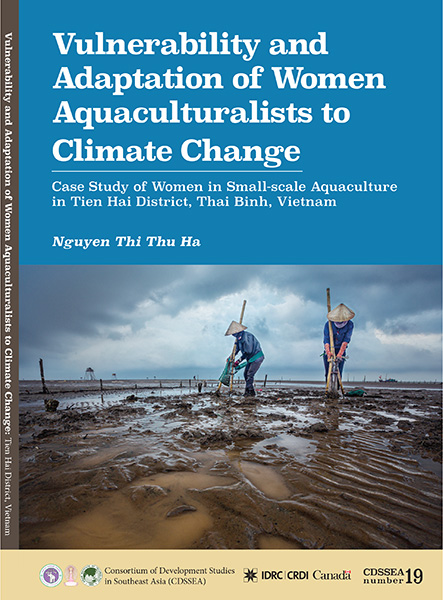Case Study of Women in Small-scale Aquaculture in Tien Hai District, Thai Binh, Vietnam
In Vietnam, fisheries and aquaculture are the second most important livelihood source after rice production. Women play a crucial role in small-scale aquaculture. Vietnam has been badly affected by climate change and due to its geographical location is likely to be one of the most significantly impacted countries going into the future. Coastal areas in Vietnam are vulnerable to frequent typhoons, storm surges, flash floods, droughts and saline water intrusion. Climate change is making these phenomena more acute. Women aquaculturists rely on marine resources— seaweed, fishing, clams and shrimps—that are worst affected by climate change. Facilities are destroyed. Saline intrusion into drinking water sources means women have to spend more time fetching water. They also have to spend more money— on repairs, re-stocking, and food for the family. They have problems obtaining credit, and worries about repaying loans if repaired facilities are destroyed by the next storm.
This report looks at how well informed and prepared these women are for the effects of climate change, and what steps are available to them to mitigate their vulnerability.
Publication date : September 2018
Price : 250 Baht / 8 US$
- THEME
- Resource Governance

